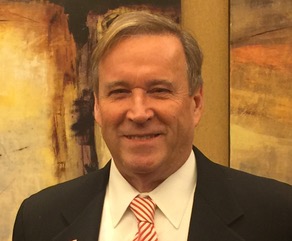The National Association of Mortgage Brokers has been advocating for mortgage brokers for almost 50 years. HousingWire spoke with former NAMB President Rocke Andrews and Roy DeLoach, NAMB’s lobbyist in Washington, D.C., about the organization’s past and current legislative efforts.
HousingWire: NAMB has been around since 1973. Can you tell us a bit about the history?

Rocke Andrews: NAMB was founded in Florida in 1973 by a group of mortgage brokers who saw a need to create a national association that protected their interests in state and federal regulations. They decided it was better to be part of the solution than to have one imposed on them. Over the years, more states became interested in forming state chapters.
NAMB also developed a code of ethics, which was introduced to other states. As NAMB evolved, so did the needs of its members.
As the legislative and regulatory landscape began to change, NAMB began to provide its members with a louder, stronger national voice on Capitol Hill. The association broke down barriers with Freddie Mac, Fannie Mae and the Department of Housing and Urban Development and began testifying before Congress. State associations branched out and gained support of local politicians.
Roy DeLoach: Yes, NAMB started with a focus on three core principles – 1. Protect your interest, 2. Band together to teach each other best practices of our industry and 3. Create ethical standards.

In the last 47 years, there have been so many changes. NAMB has worked hard to develop an expansive group of benefits with a focus on creating a type of “buying cooperative.”
Whether it’s our technology partners (such as Lending Pad, Lender Price, NAMB All-In or Home IQ, NAMB Plus), our subsidiary that has developed “Benefits Boosters” – a select group of companies committed to helping small-business mortgage professionals by providing exclusive NAMB Members Only benefits, discounts and offerings – or our Association Health Plan in conjunction with Pendella, NAMB continues to stay true to its mission of supporting the interests of our members.
HW: Legislative advocacy is a primary focus of NAMB. What are some of your successes?
RA: NAMB, as a true trade association, is highly organized in terms of our lobbying and has been very active in Washington, D.C., representing the interests of our members.
A few examples of our advocacy include protecting mortgage brokers’ continued ability to be compensated in the form of a yield spread premium, ensuring that the standardization of licensing and educational requirements applied equally to all loan originators working under a mortgage broker or mortgage lender business, helping develop the model state language for implementation of the SAFE Act into state lending laws, and championing H.R. 2570 – The Mortgage Fairness Act of 2017 – which eliminated lender paid compensation from the points and fees cap under the QM rule, as it successfully passed the House Financial Services committee.
HW: What about NAMB’s current legislative focus?
RD: Earlier this year, we urged Congress to require the GSEs to purchase those mortgage loans that were in deferral as authorized in the CARES Act. As more consumers deferred their mortgage payments, those loans were being priced with overlays of 500 to 700 basis points by Freddie Mac and Fannie Mae because they didn’t want them in their portfolio.
As part of NAMB’s Call to Action, almost 20,000 mortgage brokers and loan originators were able to help our non-bank lender partners by contacting their legislators to require the two government-owned entities – Freddie Mac and Fannie Mae – to purchase these loans without these overlays.
RA: We are also supporting H.R. 5720 – The Trigger Leads Prohibition Act, introduced by Congressman Lacy Clay, Chairman of the Committee on Financial Services, designed to ban trigger leads. This act will protect consumers from having their data sold to companies who have no relationship or transactional connection to the consumer.
Allowing companies with no direct connection to the consumer to contact them while they are navigating through the complex mortgage process is harmful, confusing, and opens up the possibility of fraud and unfair and deceptive activity.
HW: What other changes or regulations does NAMB think could help brokers?
RA: Our Government Affairs committee, spearheaded by mortgage broker Chris Bettis, is reviewing the current HMDA disclosure requirements. In our opinion, the form needs to be revamped.
The recent updates to the demographic descriptions of each borrower in a transaction are confusing. Frequently, the consumer chooses to not provide the information and the loan originator is then left with no option but to complete the information on the consumer’s behalf.


